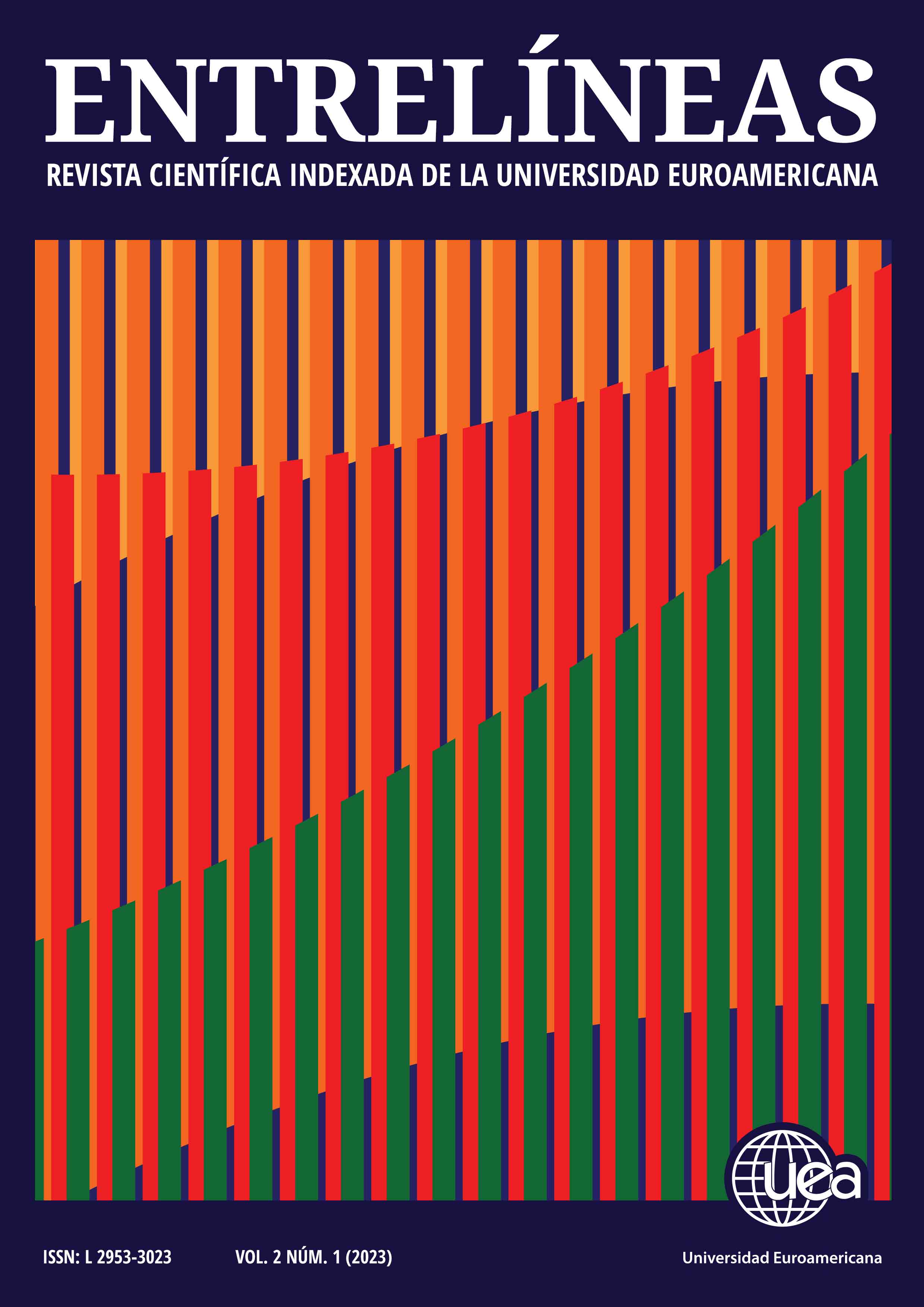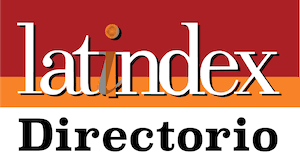Characteristics that make up the profile of family businesses
DOI:
https://doi.org/10.56368/Entrelineas217Keywords:
corporate governance, family businesses, business management, business strategy, business systemsAbstract
Family businesses are the oldest form of organization in the world and one of the most successful and economical models to manage, because they are moved by the constructive interaction of their members. To examine the characteristics that make up its profile, the particularities were studied, since the distinctive features can be established from the open dynamic systems. Achieving this purpose required delimiting the study to three fundamental areas: the unified field and the family business, the foundations that lead to the value and the distinctive features of the Family Business System. The methodology was developed from a qualitative, phenomenological, explanatory, non-experimental and inductive design. The design is based on the transversality of hermeneutic and interpretative documentary research, using comparative analysis to confer construct validity from the 47 selected sources. The development of the results compiled the characteristics that facilitate the profile of family businesses using the vision of the Family Business System, under the consideration that they must show the elements of a stable formal organization, where the values that self-regulate the social system are represented. in the vision and mission, and from the sociology and psychology of the family group, concluding that this profile was synthesized in joint factors that, presented separately, make it insufficient if it is intended to offer a definition that is as complete as possible where five subsystems are studied: the organizational subsystem, the property subsystem, the managerial environment subsystem, the generational potential subsystem, and the entrepreneurial one.
Downloads
References
Aguilera, R.V. & Cuervo-Cazurra, A. (2009). Codes of good governance. Corporate Governance: an International Review, 17(3), 376-387. https://doi.org/10.1111/j.1467-8683.2009.00737.x
Anderson, R.C. & Reeb, D.M. (2003). Founding-family ownership and firm performance: Evidence from the S&P 500. The Journal of Finance, 58(3), 1301-1328. https://www.researchgate.net/publication/4992644_Founding-Family_Ownership_and_Firm_Performance_Evidence_from_the_SP_500
Ángel Pérez, D.A. (2011). La hermenéutica y los métodos de investigación en ciencias sociales. Estudios Filosóficos, 44, 9-37. http://www.scielo.org.co/pdf/ef/n44/n44a02.pdf
Aparicio Castillo, R. (2019). Empresas familiares, ¿negocios rentables? https://www.ipade.mx/2019/04/30/empresas-familiares-negocios-rentables/
Arráez, M., Calles, J. & Moreno de Tovar, L. (2006). La hermenéutica: una actividad interpretativa. Sapiens, Revista Universitaria de Investigación, 7(2), 171-181. http://ve.scielo.org/scielo.php?script=sci_arttext&pid=S1317-58152006000200012
Bacon, F. (2011) [1620]. Novum organum. Tecnos.
Barroso Martínez, A. & Barriuso Iglesias, C. (2014). Informe 2014 la agricultura y la ganadería extremeñas. Fundación Caja de Badajoz.
Barroso Martínez, A., Sanguino Galván, R., & Bañegil Palacios, T.M. (2012). El enfoque basado en el conocimiento en las empresas familiares. Investigación Administrativa, 41(109), 62-69. https://www.scielo.org.mx/scielo.php?pid=S2448-76782012000100062&script=sci_abstract
Barroso Martínez, A. & Barriuso Iglesias, C. (2014a). Las empresas familiares. En: La agricultura y la ganadería extremeñas en 2014, 75-94. https://www.unex.es/conoce-la-uex/centros/eia/archivos/iag/2014/2014_04%20Las%20empresas%20familiares.pdf
Barroso, A., Sanguino, R. & Bañegil, T. (2012). Diferentes criterios del concepto de empresa familiar. Una aportación desde Extremadura, España. Ide@s Concyteg, 7(83), 611-622. https://www.researchgate.net/publication/323224995_Diferentes_criterios_del_concepto_de_empresa_familiar_Una_aportacion_desde_Extremadura_Espana
Barry, B. (1989). The development of organization structure in the family firm. Family Business Review, 2(3), 293-315. DOI: https://doi.org/10.1111/j.1741-6248.1989.00293.x
Becker, G. (1987). Tratado sobre la familia. Alianza Editorial.
Belausteguigoitia, I. (2003). Empresas familiares: su dinámica, equilibrio y consolidación. McGraw-Hill.
Belohlavek, P. (2005). Blue book: metodología unicista de investigación y diagnóstico de sistemas complejos. Blue Eagle Group.
Belohlavek, P. (2005a). La naturaleza de la evolución de los países. Blue Eagle Group.
Brzozowski, C. (2015). Fifth-generation industrial cleaners. Family Business Magazine, July-August. [en línea]. https://www.familybusinessmagazine.com/fifth-generation-industrial-cleaners
Chrisman, J., Chua, J. & Sharma, P. (2005). Sources and Consequencies of Distintive Familiness; an Introduction. Entrepreneurship, Teory and Practice, 29, 237-247. https://doi.org/10.1111/j.1540-6520.2005.00080.x
Corbetta, P. (2007). Metodología y técnicas de investigación social. McGraw-Hill Interamericana.
De Garay, J. (2008). Filosofía del mercado: el mercado como forma de comunicación. Plaza y Valdés.
Della Porta, D. & Keating, M. (Eds.) (2013). Enfoques y metodologías en las ciencias sociales: una perspectiva pluralista. Ediciones Akal, S.A.
Deloitte. (2017). Encuesta gobierno corporativo América Latina. https://www2.deloitte.com/co/es/pages/risk/articles/encuesta-gobierno-corporativo-america-latina.html
Deloitte. (2019). Long-term goals, meet short-term drive: global family business survey 2019. Deloitte Insights.
Dyer, W.G. (2003). The family: The missing variable in organizational research. Entrepreneurship Theory and Practice, 27(4), 401-416. https://doi.org/10.1111/1540-8520.00018
Gallo, M.A. & Domenec, M. (2004). Ética en la empresa familiar. IESE.
Gallo, M.A. & Vilaseca, A. (1996). Finance in family Business. Family Business Review, 9(4), 387-401. https://doi.org/10.1111/j.1741-6248.1996.00387.x
Gallo, M.A. (1989). Las empresas familiares. IESE.
Gallo, M.A. (1995). Empresa familiar: Textos y casos. Editorial Praxis.
Gimeno Sandig, A. (2004). El desempeño en la empresa familiar: un estudio causal de los factores y variables internas. [Tesis Doctoral]. Universidad Ramón Llull, Barcelona, España.
Gómez-Betancourt, G. (2006). ¿Son iguales todas las empresas familiares?: caminos por recorrer. Grupo Editorial Norma.
Goyzueía Rivera, S.I. (2013). Modelo de gestión para las empresas familiares con perspectivas de crecimiento y sostenibilidad. Perspectivas, 31, 87-132. https://www.redalyc.org/pdf/4259/425941261003.pdf
Grabinsky, S. (2016). Las empresas familiares modernas. Textos prácticos para emprendedores. UNAM.
Leach, P. (1993). La empresa familiar. Ediciones Granica SA.
Molina Parra, P.A, Botero Botero, S. & Montoya Monsalve, J.N. (2016). Empresas de familia: conceptos y modelos para su análisis. Pensamiento & Gestión, (41), 116-149. http://www.scielo.org.co/pdf/pege/n41/n41a06.pdf
Moreno Gómez, J.I. (2015). Las buenas prácticas de gobierno corporativo en las empresas familiares y su impacto en la rentabilidad y la riqueza socioemocional. [Tesis Doctoral]. Universitat Autónoma de Barcelona, Barcelona.
Morin, E. (1990). Introducción al pensamiento complejo. Gedisa Editorial.
Neubauer, F. & Lank, A. (1999). La empresa familiar. Cómo dirigirla para que perdure. Ediciones Deusto, S.A.
Padrón G.J. (2006). Bases del concepto de "investigación aplicada" (o "investigación aplicativa" o "aplicaciones"). Entretemas [en línea]. http://padron.entretemas.com.ve/InvAplicada/index.htm
Priwer, C. & Phillips, C. (2005). Todo sobre Einstein. Ma Non Troppo.
Ramírez Elizondo, C. (2015). La financiación y el buen gobierno de las empresas familiares. En: El gobierno corporativo en Iberoamérica. Fundación Instituto Iberoamericano de Mercados de Valores. (2015). IIVM.
Ramírez Ospina, D.E. & Macías Ramírez, V.H. (2012). Empresas de familia: un análisis desde la teoría de la agencia. Económicas CUC, 33(1), 9-32. https://repositorio.cuc.edu.co/bitstream/handle/11323/1527/7.%20Empresas%20de%20familia.pdf?sequence=1&isAllowed=y
Ramos-Galarza, C. (2020). Los alcances de una investigación. CienciAmérica, 9(3), 1-5. https://dialnet.unirioja.es/servlet/articulo?codigo=7746475
Rizo Rivas, J.M. (2018). Abrir en caso de emergencia: guía para el buen desempeño de una organización familiar. Instituto Mexicano de Contadores Públicos.
Rodríguez Zapatero, M., Rodríguez Jiménez, M. & Rodríguez Alcaide, J.J. (2010). Interpretación de la familia empresaria. Universidad de Córdoba.
Rosado, J & Solanilla, P. (2018). La reputación de la empresa familiar frente a la transformación digital. D+I Llorente & Cuenca. https://ideasen.llorenteycuenca.com/wp-content/uploads/sites/6/2018/07/DI_Reputacion_de_la_empresa_familiar.pdf
Rosenblatt, P., Demik, L., Anderson, R. & Johnson, P. (1985). The family in business: Understanding and dealing with the challenges entrepreneurial families face. Jossey Bass.
Rueda Galvis, J.F. & Rueda Galvis, M.A. (2019). Definición, importancia y análisis de la empresa familiar. Lúmina, (20), 1-19. https://doi.org/10.30554/lumina.20.3260.2019
Sarbah, A., Quaye, I. and Affum-Osei, E. (2016) Corporate Governance in Family Businesses: The Role of the Non-Executive and Independent Directors. Open Journal of Business and Management, 4, 14-35. https://doi.org/10.4236/ojbm.2016.41003
Santandreu, E. (2005). La empresa familiar. Centremetal.Lúrgic Upmball.
Spector, B. (2011). Family business longevity examined in a new light. Family Business Magazine. [en línea]. https://www.familybusinessmagazine.com/family-business-longevity-examined-new-light-0
Super Sociedades. (2017). La primera generación sigue mandando en las sociedades de familia. https://www.supersociedades.gov.co/Noticias/Paginas/2017/la-primera-generacion-sigue-mandando-en-las-sociedades-de-familia.aspx
Tàpies Lloret, J. (2011). Empresa familiar: un enfoque multidisciplinar. Universia Business Review, 32, 12-25. https://www.redalyc.org/pdf/433/43320760001.pdf
Trevinyo-Rodríguez, R.N. (2010). Empresas familiares: visión latinoamericana estructura, gestión, crecimiento y continuidad. Pearson Educación.
Universidad Camilo José Cela (2019). Cinco retos a los que se enfrentan las empresas familiares. https://masterempresafamiliar.com/blog-empresas-familiares/cinco-retos-a-los-que-se-enfrentan-las-empresas-familaires/
Valbuena, M., Morillo, R. & Salas, D. (2006). Sistema de valores en las organizaciones Omnia, 12(3), 60-78. https://www.redalyc.org/pdf/737/73712303.pdf
Vargas Cordero, Z. R., (2009). La investigación aplicada: una forma de conocer las realidades con evidencia científica. Revista Educación, 33 (1), 155-165.
Vélez, D., Holguín, H., De la Hoz, G.A., Durán, Y. & Gutiérrez, I. (2008). Dinámica de la empresa familiar pyme: estudio exploratorio en Colombia. Fundación para el Desarrollo Sostenible.
Ward, J. (1988). The Special Role of Strategic of Planning for Family Business. Family Business Review, 1(2), 105-117. https://doi.org/10.1111/j.1741-6248.1988.00105.x
Ward, J. & Dolan, C. (1998). Defining and describing family business ownership configurations. Family Business Review, 11(4), 305-310. https://doi.org/10.1111/j.1741-6248.1998.00305.x
Ward, J. (2006). El Éxito en los Negocios de Familia. Bogotá, Colombia: Norma.
Zuluaga Arango, P. (2010). Una perspectiva de las empresas de familia: el caso de las empresas de familia manizaleñas. [Tesis de Maestría]. Universidad Nacional de Colombia, Colombia.
Downloads
Published
Issue
Section
License

This work is licensed under a Creative Commons Attribution-NonCommercial 4.0 International License.
You are free to:
- Share — copy and redistribute the material in any medium or format
- Adapt — remix, transform, and build upon the material
- The licensor cannot revoke these freedoms as long as you follow the license terms.
Under the following terms:
- Attribution — You must give appropriate credit , provide a link to the license, and indicate if changes were made . You may do so in any reasonable manner, but not in any way that suggests the licensor endorses you or your use.
- NonCommercial — You may not use the material for commercial purposes .
- No additional restrictions — You may not apply legal terms or technological measures that legally restrict others from doing anything the license permits.









